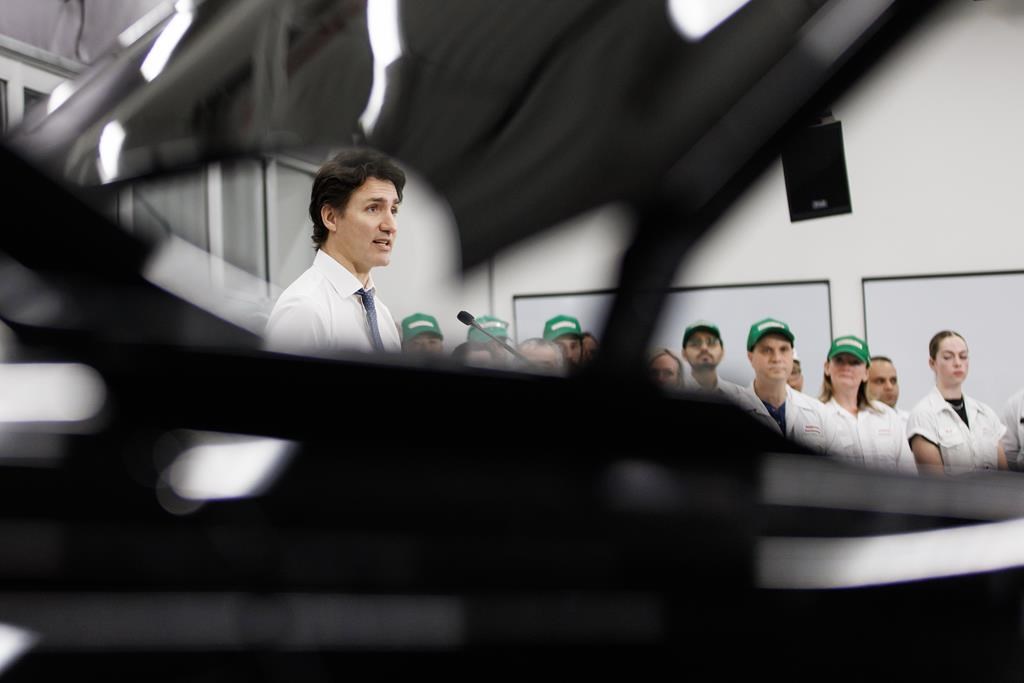Flaherty Calls HST A Good Economic Policy
Posted September 19, 2009 5:33 pm.
This article is more than 5 years old.
Harmonization of the federal GST with provincial sales taxes remains the most important thing provinces can do to improve their competitiveness, says Federal Finance Minister Jim Flaherty.
“It’s good longterm economic policy for the people of Canada,” Flaherty said in Brampton, Ont., on Friday at the launch of the city’s new rapid transit bus service called Zum.
“The decision to harmonize is always up to the individual province whether they choose to do it or not,” Flaherty said.
He said he had not yet seen a new TD Bank report that said harmonization of the federal GST with provincial sales taxes in Ontario and British Columbia will result in an immediate and permanent increase in costs for consumers in those provinces.
TD economists Don Drummond and Diana Petramala estimate in the report issued Friday that the increase in taxes paid by consumers on goods and services will boost the consumer price index in those two provinces by 0.7 per cent and result in a 0.4 per cent bump in the national inflation rate.
The economists argue that tax harmonization will save companies about $6.9 billion.
Some of the savings will be pushed through to consumers but not enough to completely offset the rise in consumer prices.
The economists say the measure is welcome, however, because harmonization is a more efficient manner of collecting taxes and will increase competitiveness in the two provinces.
But Ontario’s Progressive Conservative leader said the TD report shows the harmonized sales tax is bad news for consumers.
“TD Economics shows the ‘Dalton Sales Tax’ is just that – a permanent tax grab that will result in higher prices on the things we buy with no immediate benefit to consumers despite the premier’s promises,” Tim Hudak said in a statement.
“(Premier) Dalton McGuinty has taken the idea of reducing red tape for business and turned it into a massive tax grab on Ontario’s families in the midst of a recession,” said Hudak.
Ontario and British Columbia plan to merge their sales taxes with the federal GST next July, meaning Ontario residents will pay a combined tax of 13 per cent while B.C. residents will ante up 15 per cent.
Flaherty is providing $4.3 billion to Ontario and $1.6 billion to B.C. to make the change.
On Wednesday, Ontario Premier Dalton McGuinty called on federal Liberal Leader Michael Ignatieff to clarify his position on what Ignatieff has publicly called the “Harper Sales Tax.”
McGuinty said on Tuesday that Ignatieff had agreed to support the blended sales tax should he become prime minister, then, after pressure from Ignatieff’s office, McGuinty said there was “no formal agreement.”
When asked to clarify his position Friday on the harmonized sales tax and whether he was contradicting McGuinty, Ignatieff in Ottawa said “No, we’re not.”
“Our position from the beginning has been that this is a matter between the Harper government and the provincial governments concerned. Period,” said Ignatieff.
“I’m the leader of the Opposition. I’ve got no position to clarify. It’s between those two governments. And when I become prime minister I’ll have other decisions to take,” he said.
Nova Scotia, New Brunswick and Newfoundland and Labrador harmonized their sales taxes with the federal GST more than a decade ago.
Quebec partially harmonized its sales tax system and Alberta has no provincial tax. Saskatchewan, Manitoba and Prince Edward Island don’t have harmonized sales taxes.










